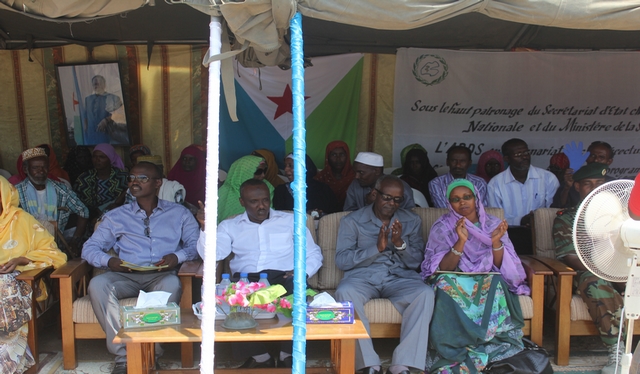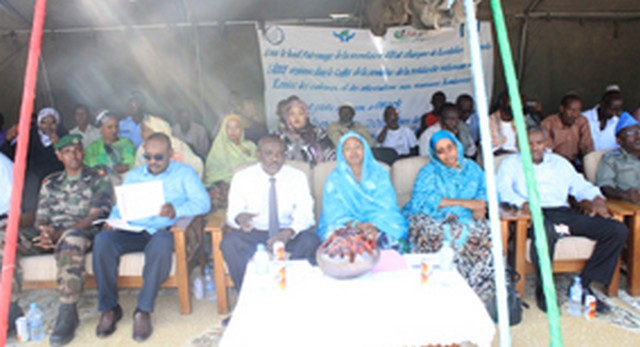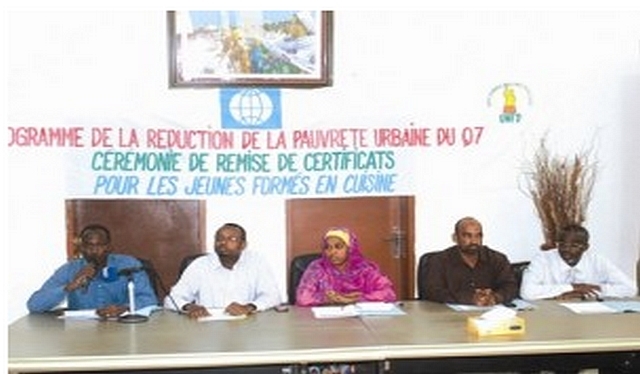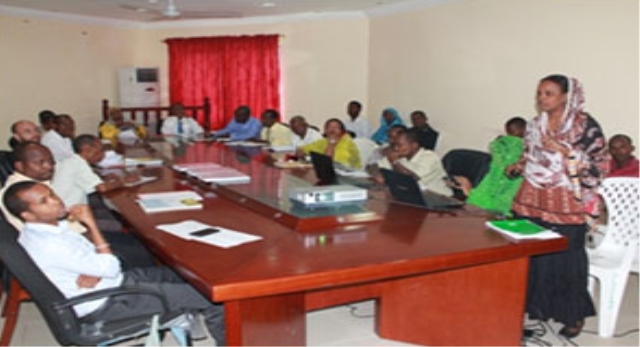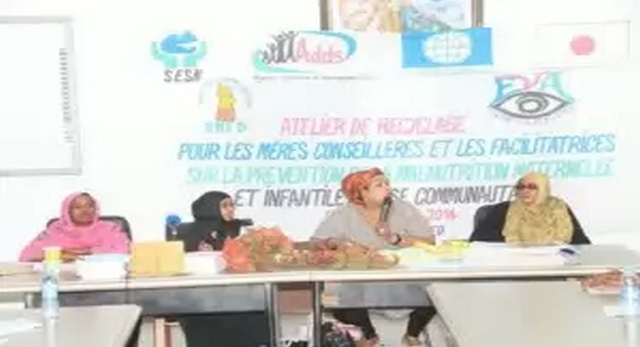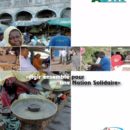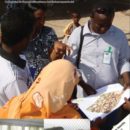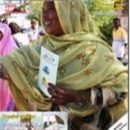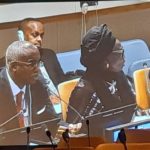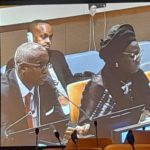ADDS led a noble action Hayableh neighborhood, in the municipality of Balbala. The initiative is part of the sustainability of Islamic microfinance pilot unit launched in 2011. It aims to support income-generating activities for the poor and promote development sectors activities such as fishing, mining, trade, crafts, services, etc.
Under the patronage of the Minister of State for National Solidarity Zahra Youssouf Kayad, the Djibouti Social Development Agency (ADDS) held last Thursday in Al-Rahma complex a ceremony granting funding to 274 developers from the area Hayableh, in the municipality of Balbala.
The ceremony took place in the presence of the president of the municipality of Balbala, Yusuf Hassan Nouho, the Director General of the ADDS, Mahdi Mohamed Djama, the MP Aicha Dabar and several local officials.
The action undertaken by the ADDS and is part of the sustainability of Islamic microfinance pilot unit launched in 2011 and whose objectives are to support income-generating activities for the poor and promote development of activities such as fishing industries, mines, trade, crafts, services, etc.
Namely that Islamic finance is based on five principles which bans taking of interest, uncertainty related to speculation and illicit assets such as alcohol, games of chance and tobacco, all prohibited by Sharia. It is based on the sharing of profits and losses and the existence of an underlying asset. It requires no collateral and, in contrast, is devoted exclusively to the vital needs of the country.
Unlike conventional finance, Islamic finance does not practice speculative methods and does not offer interest taken to compensate loans.
Thus, since its official launch, Islamic microfinance pilot unit ADDS raised awareness 1000 people, identify and fund 235 projects to date 146 projects including 104 for women.
Promoted in 2008 by President Ismail Omar Guelleh, in the framework of the INDS, microfinance is an effective tool for poverty reduction. It is beneficial particularly in terms of funding populations generally excluded from the traditional banking sector; to enable them to develop economic activities contributing to the creation of wealth, employment and growth.


